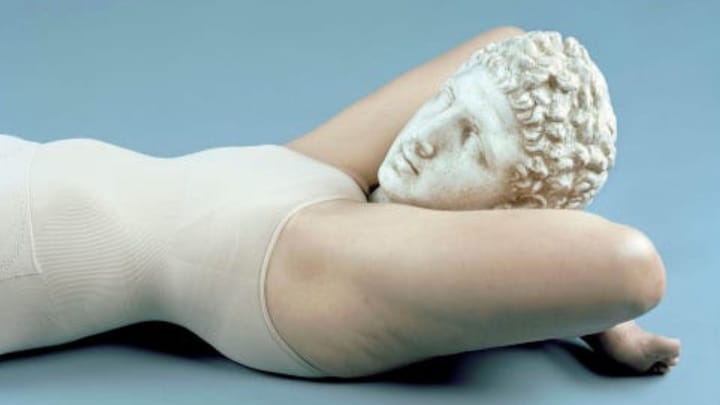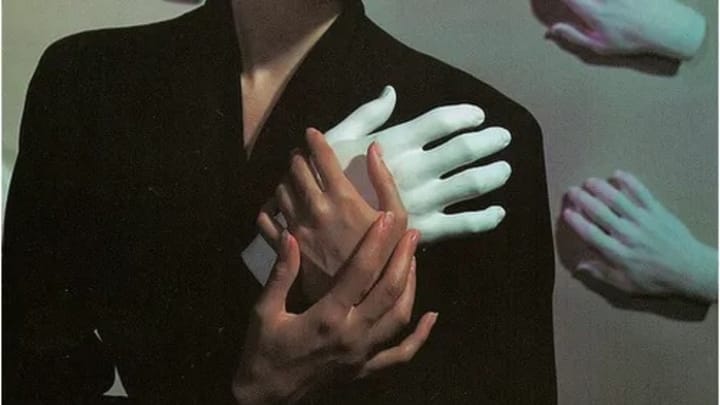Anna Gát: What to Read This Weekend #50
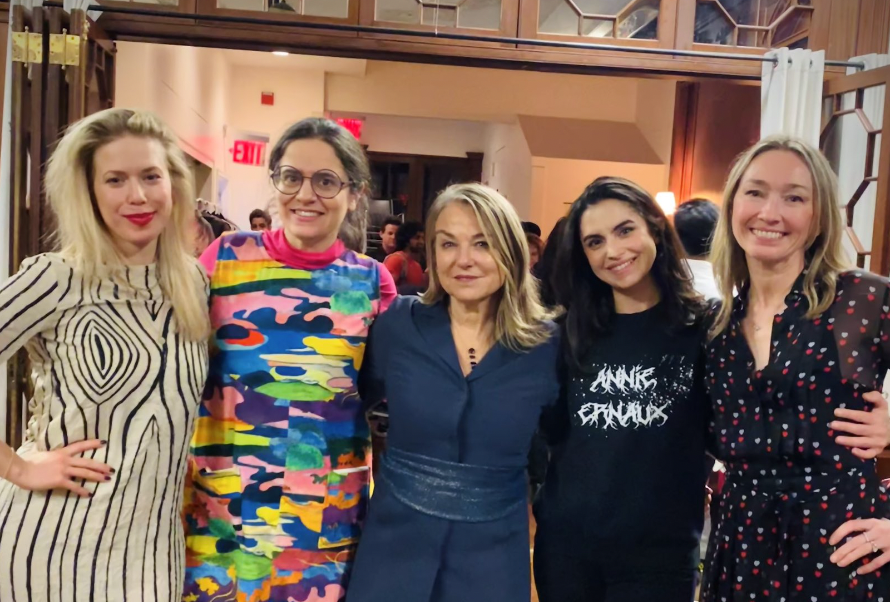
Week 50! 🎉 Interintellect in New York! And Orwell, Thomas Mann, Paglia, Parfit, pessimism, fat shaming — elites, parents, tweets, booze, brains, and other weapons — and more!
Subscribe to Anna’s weekly digest on the Interintellect Substack.
Evening, folks! I’m still mostly in pyjamas: yesterday and the week before were tough, fun, intense, full of running around and talking and reading, as we prepared for our big Interintellect offline in New York City with Esther Perel, Merve Emre, Agnes Callard, Skye Cleary, and myself.
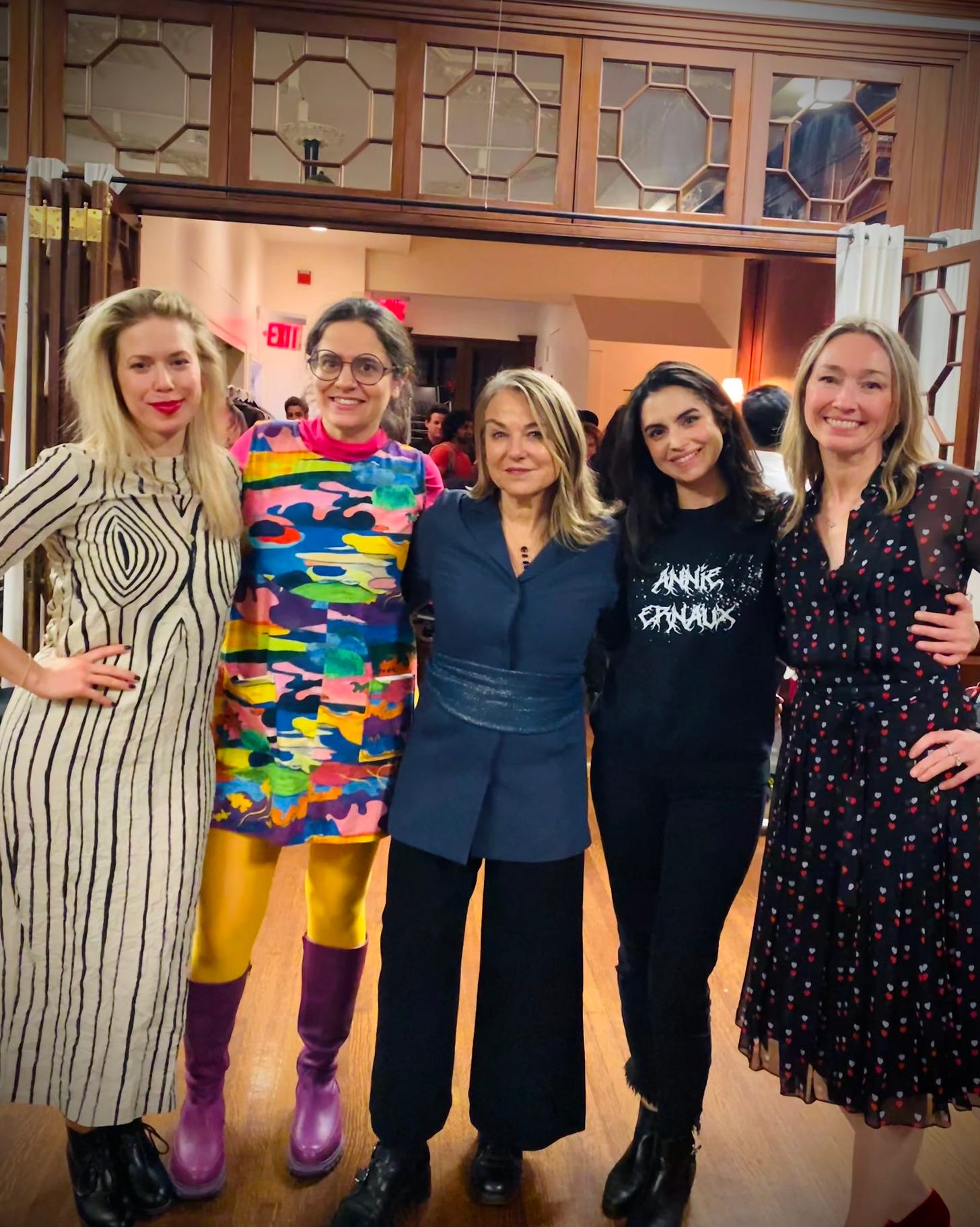
The event itself was last night. I feel it went well; it attracted so many people that we had to seat some of them in the buffet area. In the first part of the program Merve, Skye and Agnes talked about false/true love and the surrounding clichés, and then played a game, with Esther in attendance. After a break we all joined a panel with Skye moderating, and talked about what in our living and reading experience is true about love. This unique speaker combination brought together perspectives from psychology and philosophy, literary history and theory, aesthetics, art criticism, and diverse life stories. The resulting discussion was excellent: Lacan, Socrates, Nussbaum, Nietzsche, Freud, Flaubert, James Joyce, and much more. I was in awe of our guests’ humility, openness, honesty, and reading ethic, and greatly enjoyed our audience’s questions and contributions as well. The feedback so far has been very positive. Video coming soon!
And, if you’re free: I’m hosting a casual gathering on January 28, near NYU, drinks & conversation. After that I’ll be gearing up for an April 13 mini-fest, again here in New York, and will try to get some writing and relocation done in the meantime... More when we get there.
Below: some readings for your weekend. Enjoy! x
Music is Joy
In both Classical and contemporary Chinese, these two ideas of music and joy are so close, they share the same character: 樂. The two readings of the character are only distinguished by their pronunciation. Spoken as “lè”, the character means “joy”, and spoken as “yuè”, it means music. According to my etymological dictionary, the latter meaning is the primary one: 樂 depicts a stringed instrument, where the upper component (𢆶) represents the strings, and the lower component (木) represents a wooden structure. The bit in the middle — 白 — is a component that originally indicated the sound of the word.
- Dr Will Buckingham; Looking for Wisdom
How mathematics built the modern world
As universities vacillated in their attitude toward the calculating paradigm, the teaching of practical mathematics proved a fertile ground for private education, as occupational opportunities in business, navigation, and instrument making created a willingness to pay for mathematical skills. Private academies started to be formed in England during the seventeenth century to provide teaching in practical skills such as letter writing, double-entry bookkeeping, and arithmetic. At the end of the eighteenth century, there were 200 such academies.
- Bo Malmberg and Hannes Malmberg; Works In Progress
How do elite groups form?
The family clearly has an extremely high level of talent, and its members have applied their skills in numerous different ways. They are, in short, elites. They’re elite at everything they do, from apprehending terrorists to leading nation-states to administering the law to commanding congregations to developing optimal algorithms for nearest-neighbor search and more. It’s unlikely any of them would have failed in life.
- Cremieux Recueil; Aporia
Influencers — Looking beyond the consensus of the crowd.
It has not helped matters that the rise of social media has coincided with a serious decline in the general public’s faith in experts and other trusted sources of objective knowledge—a term we are now too often tempted to put between scare quotes.
- Wilfred M. McClay; The Hedgehog Review
The Seven Laws of Pessimism — If life is better than ever before, why does the world seem so depressing?
The Law of Conservation of Outrage: No matter how much progress the world is achieving, the total amount of outrage remains constant.
- Maarten Boudry; Quillette
Adulting in Middle Age
This is the generation now entering middle age in America, and while they have thoroughly memed the apparently insurmountable daily task of “adulting,” they’re the ones who are reading Teen Vogue. They collect toys. They go to Disney World, unaccompanied by a minor, often alone, and on purpose.
- Amber A’Lee Frost; Jacobin
How Discovering an Equation for Altruism Cost George Price Everything (2017)
It was altruistic ants that posed a particular problem for Charles Darwin. Natural selection is often described as “survival of the fittest,” where fitness means how successful an individual is at reproducing. If one individual has a trait that gives them a fitness advantage, they will tend to have more offspring than the others; because the advantage is likely to be passed on to their offspring, that trait will then spread through the population. A fundamental part of this idea is that individuals are competing for the resources they need to reproduce, and fitness includes anything that helps an individual reproduce more than the competition. But as Darwin observed, ants and other social insects are not in competition.
- Michael Regnier; Nautilus
The Holy Evil — On inequality and love
In her pursuit of a theory of equal love, [Becca Rothfeld] acknowledges … that equality in love can’t be dependent on social equality; and, using as her centerpiece Norman Rush’s wonderful novel Mating, she advocates as the wellspring of equal love a kind of conversational equality that mirrors or invokes the more immeasurable, mysterious intellectual equality. Love is an indefinite and mutually passionate verbal exchange. The essay is aptly titled “Our True Entertainment Was Arguing.” Rothfeld’s wish is to term this equal love simply “love,” since “anything less is unworthy of the name.”
- Lillian Fishman; The Point
Rules for the Ruling Class
Some of the combatants’ definitions of “élite” are almost perfectly opposed. In recent writings, Bernie Sanders blasted the “billionaire class, the corporate elites, and the wealthy campaign donors”; Marc Andreesen, the billionaire venture capitalist and campaign donor, enumerated “enemy” ideas that block the advance of technology, including “the nihilistic wish, so trendy among our elites, for fewer people, less energy, and more suffering and death.” Amid the competing accusations, you may find yourself quietly wondering: Am I in the ruling class?
- Evan Osnos; The New Yorker
The Mars Colonization Tech Stack
Getting to Mars ties in physics, mathematics, biology, chemistry, structural engineering, material science, and more. For this reason, there’s almost nothing that NASA doesn’t research.
- Anna-Sofia Lesiv; Contrary
The Failed Saint: On George Orwell’s India
Orwell’s hometown, such as it is, lies in the same state where my wife grew up, the state of Bihar, one of the most neglected corners of India, known as much for corruption, poverty, and crime as for its breathtaking Buddhist ruins. It was inevitable that I would visit this land and feel compelled to understand how it went from being one of the world’s richest regions to a forgotten backwater. I knew too that, as a long-time Orwell admirer, I would one day make a pilgrimage to that old bungalow, if only to ponder in its presence how a colonial child turned against the very institution that sustained his life.
- Jason Christian; Los Angeles Review of Books
I Was Told No One Wants Fat Girls
As many as 90 percent of so-called obese women in heterosexual relationships have been bullied and belittled for their weight by their male partners...
- Kate Manne; The Cut
Making every researcher seek grants is a broken model
To get scientific breakthroughs, we want to allow talented, dedicated people to pursue hunches for long periods of time. This means we need to trust the process, long before we see the outcome.
- Jason Crawford
It’s not so much thinking out what to do, it’s the doing of it that sticks me (1995)
Wittgenstein’s own ‘anti-philosophy’ is seen as an attempt to restore sanity to the philosophical mind caught up in the hyperconsciousness of metaphysical thought. He noted that when we act or interact – simply, perhaps, walk about in our surroundings rather than sit still and stare at them – we are obliged to reckon with the ‘otherness’ of things.
- Iain McGilchrist; London Review of Books
The Psychopolitics Of Trauma
“Trauma” isn’t technically a mental disorder. The DSM contains seven “trauma and stressor related disorders”, of which the best-known is PTSD.
- Scott Alexander
Why do some kids learn to talk earlier than others?
“There’s been much debate and discussion in the literature in recent years about how socioeconomic status does or doesn’t link to language input and language output,” noted Bergelson, who is immersed personally in early development baby babble, having given birth to her second child last year. “We looked in many, many, many different ways … In no form did we ever find evidence that moms with more education had kids who produced more speech in these tens of thousands of hours of recordings from daily life.”
- Elizabeth Zonarich; The Harvard Gazette
When we imagine ourselves as another creature, we become more attuned to the world around us – and better at being human
Though my experience suggests that we might dilute our anxiety by grounding ourselves in our animal bodies, others try to shortcut such anxiety by stepping into another’s form.
- Erica Berry; Aeon
Why doesn't Economic Development necessarily foster Cultural Liberalism and Individualism?
In the West economic development spawned cultural liberalism and individualism. But growth has not had similar effects worldwide. Many prosperous places - like Saudi Arabia, Malaysia and South Korea - remain quite conservative.
- Alice Evans
Is Ethics Like Math? — Derek Parfit’s quest for the true ethical theory
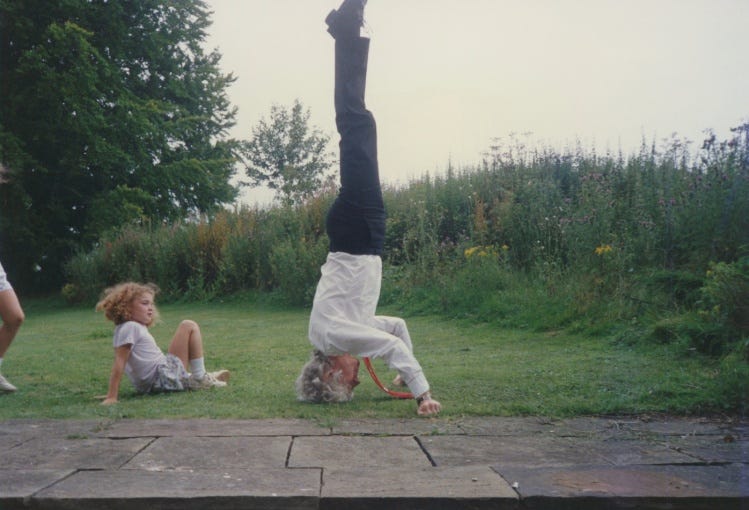
Ethics is also about how to live a life that possesses integrity, character, and a distinctive style; a life is not just the site for the performance of moral or immoral acts.
- Frank B. Farrell; Commonweal
Millennials and Gen Z Are Wealthier Than Previous Generation at Same Stage
At a median age of 30, according to a graph compiled by Horpedahl using the Federal Reserve's 2022 Survey of Consumer Finances (SFC), millennials and Gen Zers had accumulated $118,279 in generational wealth per capita by Q3 of 2023, compared to Gen X's $52,752 when they were the same age.
- Giulia Carbonaro; Newsweek
The Bernstein Enigma
The absence of any reflections in the film on his politics came as a genuine surprise. After having his passport revoked in 1953, Bernstein was stalked by J. Edgar Hoover’s FBI for three decades.
- Philip Clark; The New York Review of Books
Settembrini and the continuing relevance of classical liberalism
Perhaps the underlying model is this: classical liberals often seem out of touch, because the world is too negative to respond to their concerns. Most of the time classical liberals are shouting into the well, so to speak. But they need to keep at it. Every now and then a window for liberal change opens, and then the classical liberals have to be ready, which in turn entails many years in the intellectual and ideological wilderness.
- Tyler Cowen
The End of Alcohol
Herbert’s special worry about the shame brought by the third drink brings to mind another three-stage adage about the progression of alcoholism: “The man takes a drink, the drink takes a drink, the drink takes the man.”
- Virginia Heffernan
The monstrous old master: how Succession’s Rubens lays bare the Roy family’s brutality
Yet one of the most powerful artworks on TV is perhaps the painting looming behind the Roy family in the promotional poster for the first seasons of Succession: Peter Paul Rubens’s The Tiger Hunt. It’s viscerally chaotic, depicting a never-ending cycle of animals battling humans – biting, punching, ripping, and killing. The poster suggests that the Roys are live embodiments of the figures grappling behind them, and speaks to the many power dynamics that underpin the series.
- Katy Hessel; The Guardian
The one thing stopping us from having great sex, according to Dr Ruth (2019)
Throughout the roughly one hour and forty minute documentary Ask Dr Ruth, the viewer is given the full context for this person known almost exclusively for sex. And its greatest success is in being able to capture Dr Ruth’s essence and unbridled joy: it is the air of the film and what makes it particularly gripping to watch. Given the trauma she faced as a child, plus the criticism for her choice of career, the anti-semitism and sexism and ageism, people often ask her how and why she’s able to maintain such a positive, playful attitude…
- Alicia Lutes; Stylist UK
The Dark Forest hypothesis is absurd
The fact is that although the night sky looks black, it’s actually pretty transparent. Other than a little bit of interstellar dust, there’s not much standing between any two alien worlds.
- Noah Smith
In first, UK downs aerial drone with test shot from DragonFire laser
A spokesperson with the Defence Science and Technology Laboratory said the “timing of any deployment into U.K. service depends on a number of factors, but could be within the next 5 to 10 years.”
- Andrew Chuter; DefenseNews
Trials of the Witchy Women
The Witchcraft Act of 1735 was England’s effort to put a halt to witch-hunting. It made it illegal to claim that there were people with magical powers, and illegal to accuse someone of being a witch—a thing that enough people in power had decided did not exist. Science was beginning to tell different stories about the world."
- Rivka Galchen; The New Yorker
Camille Paglia on Her Lifestyle of Observation and Lamb Vindaloo (2016)
Thanks to Kate Millett and all these philistine feminist types in the early ’70s, there was a great sweeping away of many, many major male figures in the history of literature including Ernest Hemingway, D. H. Lawrence, who had a huge influence on me.
- Tyler Cowen
The Musical Age of Shitpost Modernism
Taste boundaries have also eroded and exploded over the last few years as increasingly far-out hits hurtled out from niche siloes.
- Kieran Press-Reynolds; Pitchfork
Do Classroom Rewards Work?
Very few high school students are still demanding an M&M every time they poop in the toilet. Similarly, if a period of external reward can develop good attention habits in elementary school children, they may carry those habits over. In this way, external rewards could end up looking like they increase intrinsic motivation.
- Emily Oster, ParentData
The Serendipity Machine (Notes on Using Twitter)
It can be scary to tweet, and you may feel pressure to play a certain character or tweet for engagement. I personally got over this by thinking of tweets as a type of public timestamped journal of notes to myself; an index of what I was thinking about at the time. Over time, this builds up and can be a powerful creative tool.
- Nabeel S. Qureshi
Cops Used DNA to Predict a Suspect’s Face—and Tried to Run Facial Recognition on It
Ellen Greytak, the director of bioinformatics at Parabon NanoLabs, says the company uses machine learning to build predictive models “for each part of the face.”
- Dhruv Mehrotra; WIRED
What Was Driving Force Behind Jewish History? (2012)
Once the occupational and residential transformation from farming was complete, the authors argue, there was no going back. Jews paid a high premium for their literate society. Jewish cultural norms required the maintenance of synagogues and schools, and presumed that families would forgo years of their sons’ potential earnings to keep them in school. When urban economies collapsed, as they did in Mesopotamia and Persia as a result of the Mongol conquest, the practice of Judaism became untenable, and the result was widespread defection through conversion to Islam. Accordingly, the Jews became “a small population of highly literate people, who continued to search for opportunities to reap returns from their investment in literacy.” And thus they remained up to the present day.
- Jonathan B. Krasner; The Forward
New Theory Suggests Chatbots Can Understand Text
“Many people found it a little bit eerie how much GPT-4 was better than GPT-3.5, and that happened within a year. Does that mean in another year we’ll have a similar change of that magnitude? I don’t know. Only OpenAI knows.”
- Anil Ananthaswamy; Quanta Magazine
The road to hell is paved with asphalt
Given all of the downsides of asphalt, you might ask "why is asphalt so pervasive if there are better options out there?" A lot of it comes down to cashflow.
- Devon Zuegel
‘Gaslit by doctors’: UK women with endometriosis told it is ‘all in their head’
Endometriosis is a painful condition in which tissue similar to the lining of the womb grows around other organs inside the abdomen. It affects 1.5 million women in the UK. The study looked at the experiences of treatment and diagnosis of 33 patients and revealed how doctors’ lack of understanding of the symptoms meant women often spent years in pain before their condition was diagnosed. During this period participants were told they were exaggerating their symptoms, or their pain was dismissed as psychological.
- Hannah Fearn; The Guardian
The Great Books and Thinkers Not Always Know Best
The concurring problem we face reading Great Books is that we assume that whoever wrote it knows best. We want, and rightly so, to believe that the names everyone praises can answer all our problems.
- Nicolás Forero
Spark Bird
Put differently, a little like grace, the world has already saved you. As a manifestation of God’s love, how could it not? Thus, being in right relation to the world might start with constantly encountering that reality in its solid, little ways. In your patch. Only then will you gain the world. Only then will you encounter the kind of grace that inspires transformation, not out of fear for what you can’t do, but out of love and gratitude for what has already been done for you.
- Jeremiah Scanlan; Wayfare
Choose two of the three: career, family, community
Personally, I know what choice I made: cutting community. I live out in the “middle of nowhere” on Cape Cod (guess what, there’s still surprising good sushi and ramen in the middle of nowhere). Like many men of my age, I don’t have a lot of close friends. A couple are left, those from high school, deep friendships I trust. Of course, I can recall what it was like to be popular
- Erik Hoel
Perspective: An ode to my BYU major
In my classes, I learned about literary theory, read Plato and Shakespeare for the first time, listened to classical pieces and memorized the title and composer of each one. For my “Philosophy of Art” class, the first assignment was to write an essay answering: “What is Art?” While the practical application of these studies seemed abstract and distant, I was sure of one thing — I delighted in nearly every class and assignment. Humanities felt like a playground to explore and understand my own incoherent thoughts.
- Mariya Manzhos; Deseret
The Red Sea Crisis Proves China Was Ahead of the Curve
Today, Afro-Eurasia is again the center of global demographics, economics, and geopolitics. All nations of this Indo-Pacific system want more globalization, not less. The most connected powers win by getting trading nations to use their geography instead of others’.
- Parag Khanna; Foreign Policy
Elite (2022)
Back in the 90s, a lot of people wanted to be as rich as Bill Gates. But did anyone ever want to be like him? Today, kids around the country have posters of Elon on their wall. From the ashes of sclerotic 20th Century loser culture could finally rise a new kind of shitposting techno-king: unapologetically successful, unafraid, and influential. He will have fans. His fans will vote.
- Mike Solana
Sofia Coppola’s Path to Filming Gilded Adolescence
Coppola told me that she learned from her father how to create “a warm set,” and borrowed from him a ritual he picked up in drama school: to kick off every production, stand with the cast and crew in a circle, hold hands, and recite the nonsense word “puwaba” three times. But the elder Coppola has what Eleanor, who has been married to him for sixty years, described to me as “an Italian approach—very theatrical, throwing stuff up in the air and screaming.” Sofia said that she finds such flourishes “so unnecessary.”
- Rachel Syme; The New Yorker
Everyday Philosophy: The links between Nietzsche and Rothko
Nietzsche believed that great art could give us a glimpse of the nature of reality, put us in touch with the Schopenhauerian Will, but that staring for too long into the abyss would annihilate anyone.
- Nigel Warburton; The New European
The Knowledge Economy Is Over. Welcome to the Allocation Economy
You won’t be judged on how much you know, but instead on how well you can allocate and manage the resources to get work done.
- Dan Shipper; Every
Joni Mitchell’s Best Album Is Turning Fifty. It’s Not Blue
Court and Spark, her sixth studio album, turns fifty this month. While it’s not her most beloved album (that would be Blue) and it’s not her album with the most hits (that’s Ladies of the Canyon), it is where she pushed those pop perimeters permanently.
- KC Hoard; The Walrus
Thank you for reading!
Email me at anna@interintellect.com.
Attend our public online salons here. Join our community and find more great stuff to read and thoughtful people to discuss it with here.

